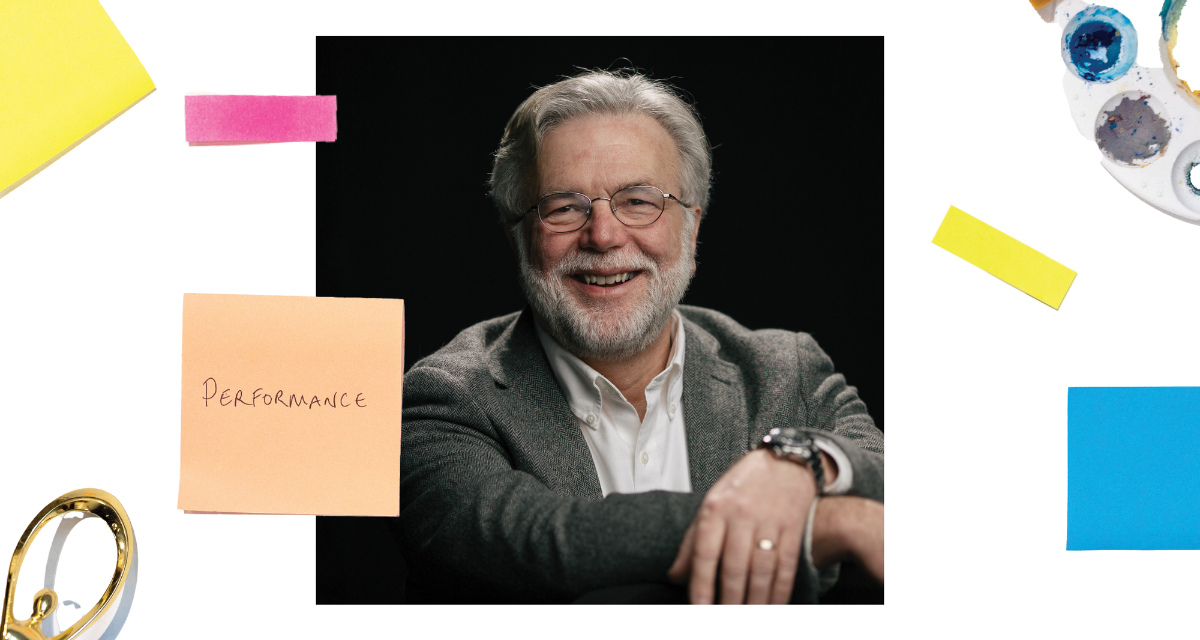What has faith to do with performance?
A version of this article by Norman Jones, professor of theatre arts, originally appeared in the spring 2023 issue of STILLPOINT magazine.
Before I went to graduate school to study theatre, I was a youth pastor for five years. When I informed the church board that I would be leaving my position to study theatre, one member said, “You should not enter such a godless profession.” “Theatre is filled with blasphemers, idolators and liars,” said another.
On my first day of grad school, I stopped by the department office to check in. A nearby door opened, and an affable looking gentleman stood smiling in the doorway. “Norm, have you got a minute?” he asked. It was Saul Elkin, the department chair and renowned theatre scholar, director and actor. I entered his oak paneled office and walked to the wingback chair he indicated.
After a few pleasantries, he asked, “Where have you been?” “Excuse me?” I replied. “You Christians. Where have you been? I have never understood what happened to you.” Dr. Elkin was genuinely curious and not at all judgmental. We discussed how the church led a resurgence of drama in the Middle Ages. “The dramatic arts seem like such a perfectly natural avenue of expression for the church,” he said.
That first conversation planted a seed in me that was nurtured throughout my graduate education. Word quickly spread about my background in ministry. In contrast to my experience with the church board, I was now consistently sought out to discuss the integration of theatre and faith. The contrast of the opinions of some well-meaning Christians and my grad school experience created a desire in me to “baptize the imagination” of Christian students so they could be encouraged to enter theatre arts with joy, confidence and strong abiding faith.
So, what has faith to do with theatre? It all begins with stories. People in every culture and throughout history have told stories. Of course, the best example of their significance is Jesus’ consistent practice of telling stories throughout his ministry. Recently, I heard an interview with a playwright. Asked why she writes plays, she said, “Because I want to know if others feel the same way I do.” For both the hearer and the teller, a story helps us realize our shared human experiences. Stories help make sense of our lives.
Likewise, stories are foundational to understanding our faith. And some stories are elevated to works of art, expressed on the theatrical stage—making faith and theatre intricately connected. Theatre is the act of embodying words as a character other than ourselves and the acceptance of that act by a participating audience. This is called the dramatic impulse. Ecclesiastes 3:11 helps us understand this dramatic impulse as God-given: “He has set eternity in the human heart; yet no one can fathom what God has done from beginning to end.”
This verse expresses a fundamental truth about theatre and other forms of art. We experience tension between being made in the image of God (“eternity in our hearts”) and our mortality (we fall short of expressing our eternal selves). Psalm 8:5 states we are “made a little lower than the angels” and Paul writes in Romans 7:15 “that we no longer have the power to do the good we want to do.” The conflict between what we were intended for and what we struggle with on this side of eternity is the essence of theatre.
Far from my church board’s original understanding of theatre, I have found theatre to be quite the opposite of a godless profession. The stage, the stories expressed there, and the broken people who embody them—they are sacred.
 The Bell
The Bell